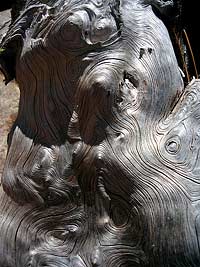Liquid wood to replace plastic
Plastic is one of the most important technological discoveries of the 20th century. However, German scientists are certain that this material may soon be replaced. The new development – liquid wood – can replace plastics in all branches of modern-day industries.

Plastic as a material enjoys the biggest demand in the modern world, but it does have a number of drawbacks. First and foremost, plastic is not recyclable. Secondly, it contains toxins that can trigger the development of cancerous diseases. Finally, plastic is made of oil, and oil reserves are not eternal.
The liquid wood technology is capable of replacing plastic and providing mankind with new materials for many years ahead. Norbert Eisenfreich, a senior researcher at the Faunhofer Institute for Chemical Technology in Germany (ICT), said that arboform, the new material, is made of lignin, which can be derived from soft tissues of wood. Once mixed with several other ingredients, the substance turns into solid and non-toxic alternative for plastics.
ICT team leader Emilia Regina Inone-Kauffmann said that the wood-working industry separates wood into three basic components – lignin, cellulose and hemicellulose. Lignin is not used for the production of paper. Specialists of the Faunhofer Institute mixed lignin with several natural materials – natural fibers of wood, hemp, flax and wax and thus invented the material which could be melted and moulded.
When solid, arboform looks like plastic and possesses the qualities of polished wood. It can be used for the production of any items .
Arboform is already used for the production of car parts which require extra strength. However, the new invention does not enjoy an extensive use due to the high content of sulphur in it. German researchers believe that they will be able to reduce the amount of sulphur by 90 percent very soon to make arboform usable for home needs.
In addition, it was determined that liquid wood can be recycled repeatedly. The analysis of arboform, which specialists conducted after a series of experiments, showed that the material preserved all of its qualities even if it was reprocessed ten times.
Pavel Urushev
Subscribe to Pravda.Ru Telegram channel, Facebook, RSS!




